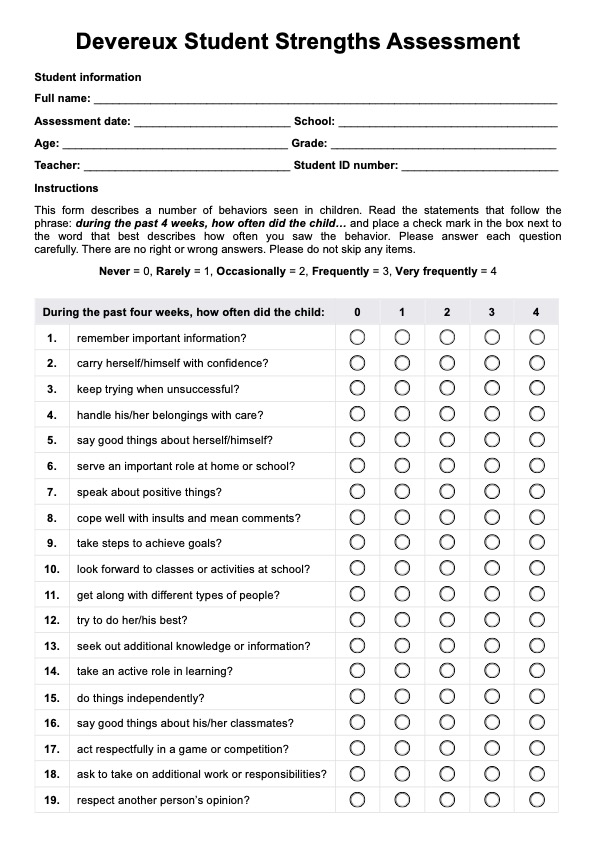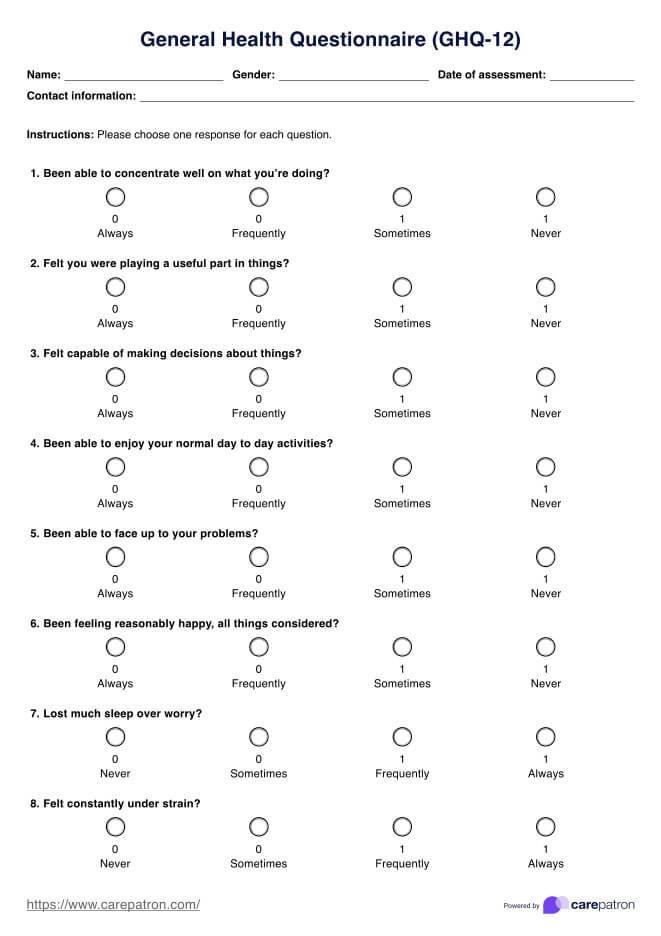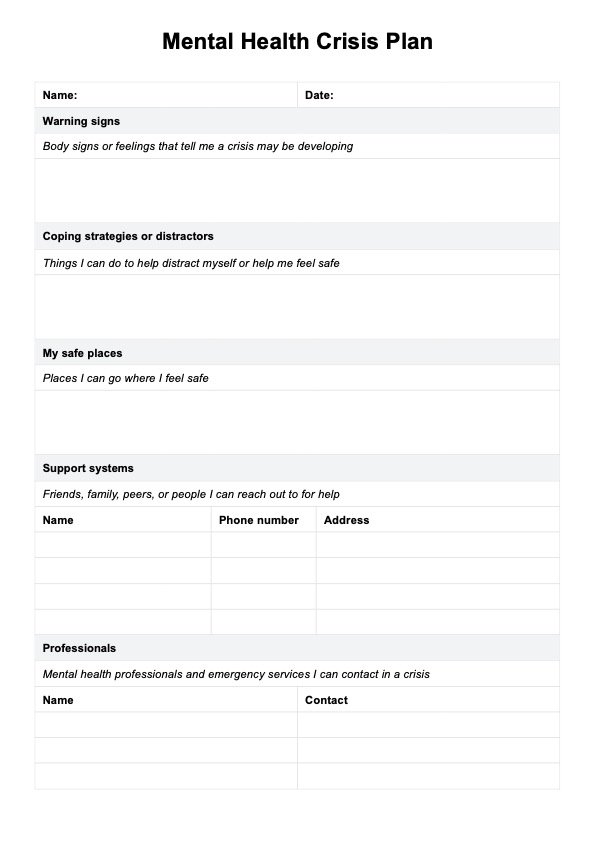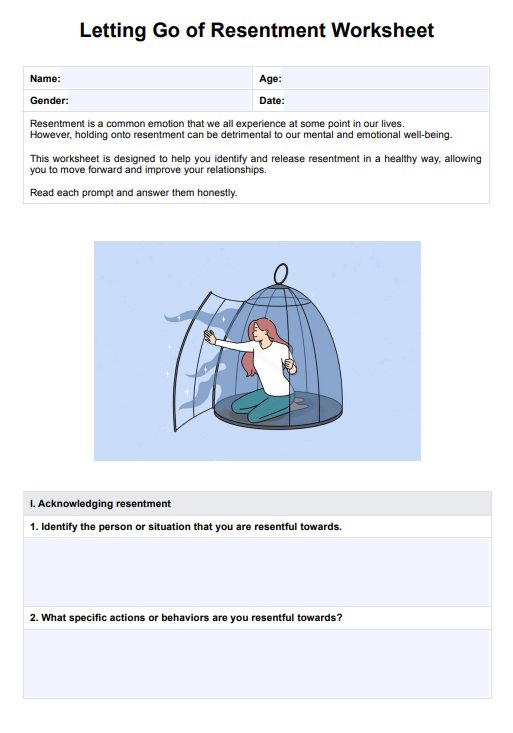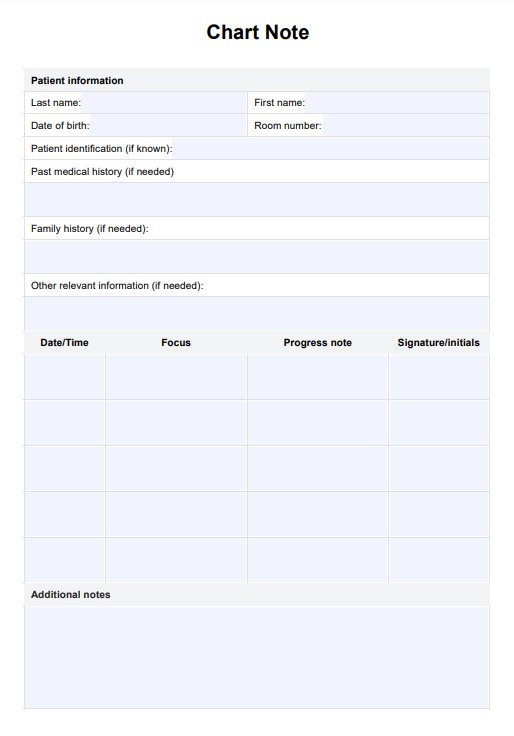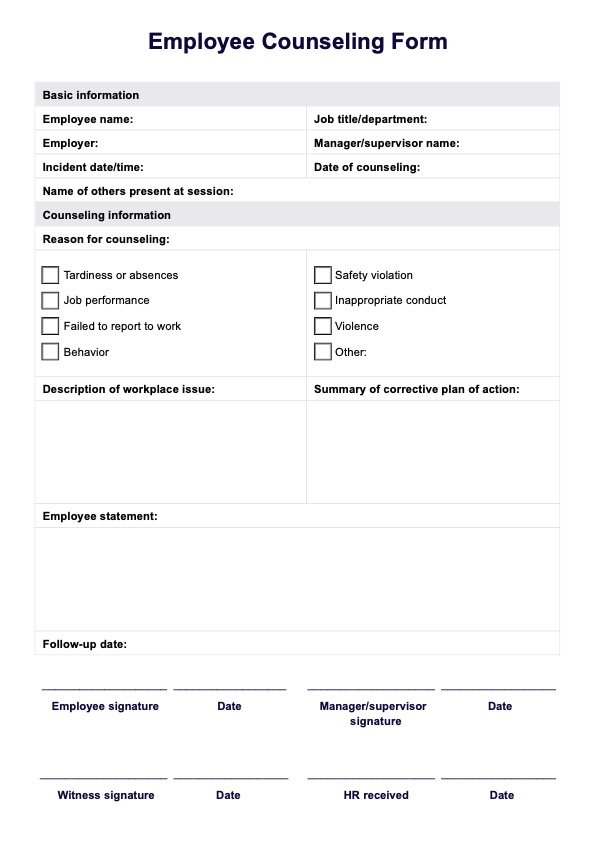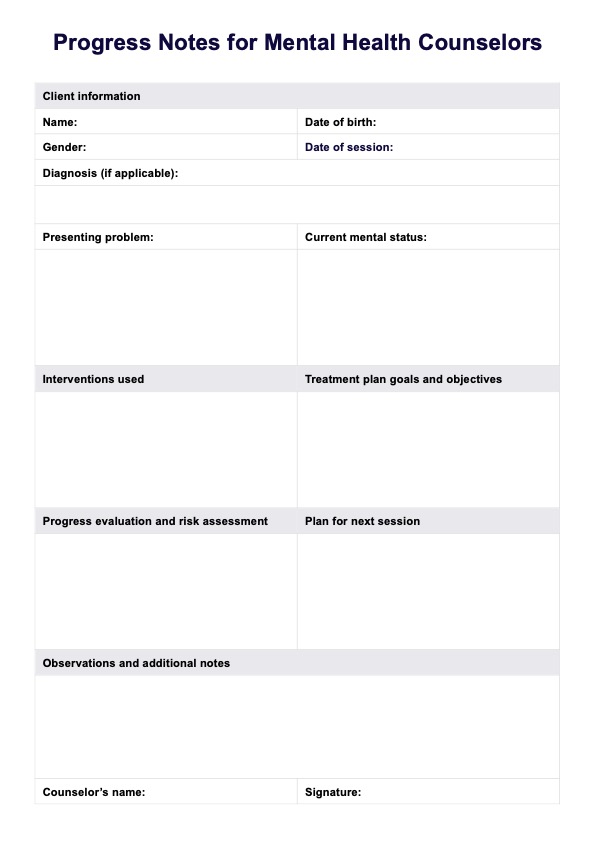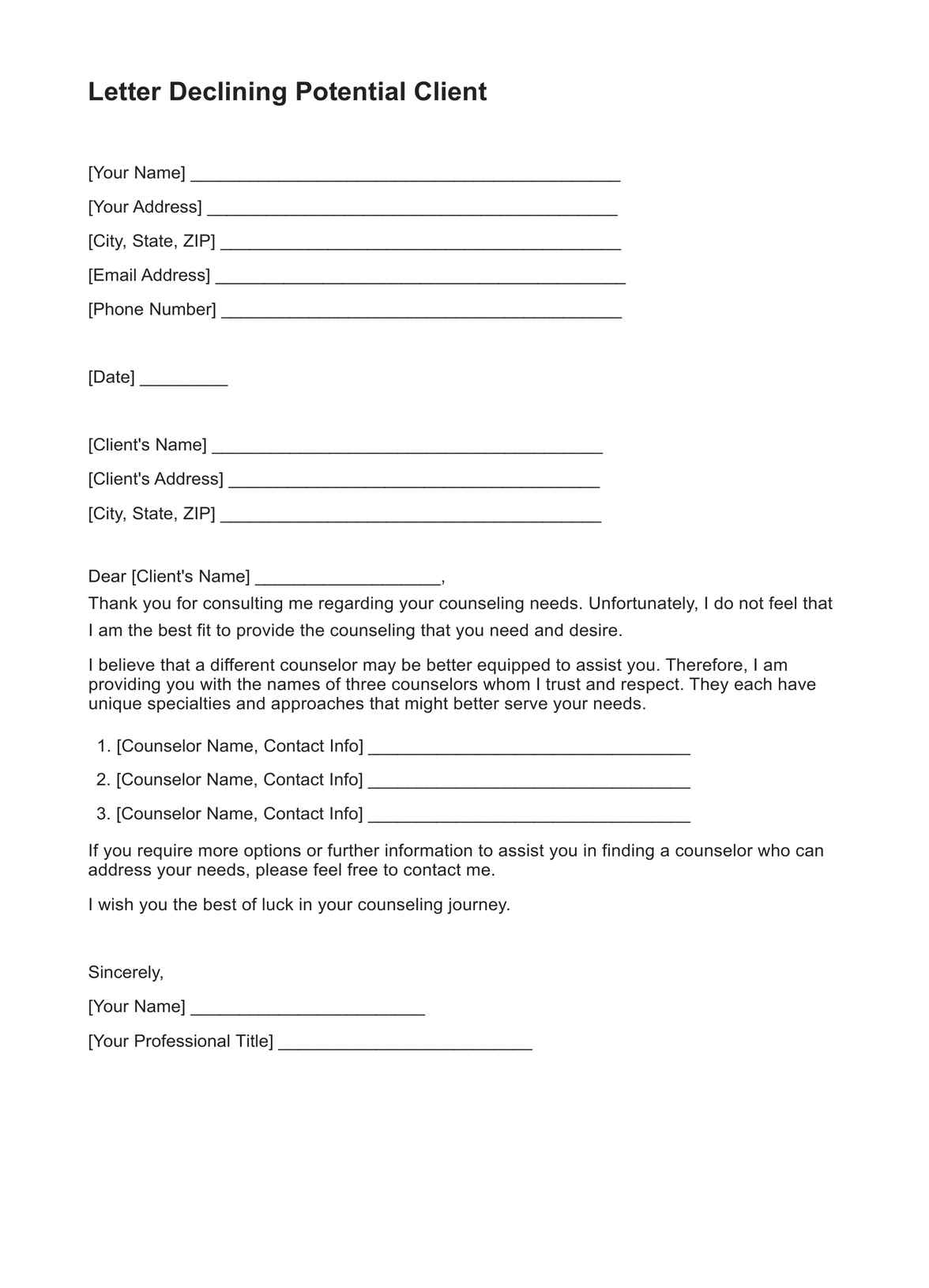Cognitive Worksheets for Adults
Elevate adult cognition with our tailored Cognitive Worksheets. Unlock potential, enhance mental acuity, and thrive in daily challenges effortlessly.


What are Cognitive Worksheets for Adults?
Cognitive Worksheets for Adults are valuable tools designed to stimulate and sharpen cognitive skills and abilities in individuals of all ages during or outside therapy sessions. Mental health professionals issue these. They are tailored for cognitive development and cover a range of cognitive activities, including language skills, life skills, executive functioning, and working memory.
Ideal for therapists, clinicians, and individuals seeking cognitive therapy or skill development, these worksheets offer engaging exercises such as verbal recall, sequence planning, and challenging activities that explore various mental processes. They are an important part of mental health treatment.
Whether used for brain injury recovery, occupational therapy, coping with negative emotions, or skill enhancement, these worksheets are a practical and instant-download resource.
From identifying cognitive difficulties to creating personalized therapy exercises, these worksheets provide a fun and effective way to improve cognition. Suitable for various age groups and subjects, these worksheets, exemplified by the HappyNeuron Pro program, can create therapy activities, challenge clients, and enhance cognitive functioning.
Explore the space of cognitive stimulation with these worksheets, print them, and discover their value to cognitive development and overall mental well-being.
Cognitive Worksheets for Adults Template
Cognitive Worksheets for Adults Example
Cognitive distortions worksheet
The cognitive distortions worksheet is a powerful tool designed to help individuals identify and understand cognitive distortions – negative thinking patterns that can impact emotions and behaviors. The worksheet employs an automatic thought record approach, prompting users to recognize automatic thoughts and associated feelings and encouraging them to challenge these thoughts with more adaptive responses.
By engaging in the process of documenting automatic thoughts and associated emotions, individuals gain insight into their cognitive patterns. This self-awareness is a crucial step in identifying and addressing cognitive distortions, which often contribute to stress, anxiety, or other mental health challenges. The structured format of the worksheet facilitates a systematic exploration of thoughts and emotions, empowering individuals to break free from negative thinking patterns.
The emphasis on challenging automatic thoughts with more adaptive responses promotes cognitive restructuring, a fundamental aspect of cognitive-behavioral therapy (CBT). This approach enables individuals to replace distorted thoughts with more balanced and realistic perspectives, fostering emotional well-being and healthier decision-making.
CBT model worksheet
The CBT model worksheet is an accessible guide to understanding the cognitive-behavioral therapy (CBT) model, breaking down the intricate connection between thoughts, emotions, and behaviors. In simple terms, it explains how our thoughts influence our feelings and, in turn, impact our actions.
Consider this scenario: Imagine receiving critical feedback at work. Your initial thought might be, "I'm a failure." This thought then triggers emotions, perhaps leading to feelings of sadness or anxiety. Consequently, your behavior may involve avoiding tasks or feeling demotivated. The CBT model worksheet helps individuals recognize and analyze such automatic thoughts, facilitating understanding of the cascading effect on emotions and behaviors.
The worksheet underscores the value of changing negative thinking patterns by teaching the interaction between thoughts, emotions, and behaviors. Through practical examples and exercises, individuals learn to challenge and reframe distorted thoughts, fostering a more positive outlook. This cognitive restructuring is at the core of CBT, empowering individuals to manage emotions and modify behaviors effectively.
In essence, the worksheet provides a user-friendly introduction to the foundational principles of CBT. Illustrating the interconnected nature of thoughts, emotions, and behaviors equips individuals with valuable insights and practical tools for transforming negative thinking patterns and enhancing emotional well-being.
CBT techniques worksheets
The CBT techniques worksheets offer practical tools for individuals engaging in cognitive behavioral therapy (CBT). The coping styles worksheet is designed to help users identify their coping styles, recognize associated risk factors, and pinpoint triggers that may impact their mental well-being. By exploring these elements, individuals gain insight into their unique ways of dealing with stressors, enabling them to make informed decisions about adaptive coping strategies.
The dysfunctional thought record is another valuable resource within the worksheets. This record prompts users to document dysfunctional thoughts, challenge them by questioning their validity, and then note the outcome of this cognitive restructuring. This process empowers individuals to actively engage with and reframe negative thought patterns, promoting more positive and balanced thinking.
Mindfulness worksheets
Discover the transformative power of mindfulness with mindfulness worksheets. The mindful breathing worksheet is a practical guide to reducing stress and anxiety through intentional breath awareness. By incorporating mindful breathing practices into your routine, you can cultivate a sense of calm and promote emotional well-being.
The mindful eating worksheet offers a unique approach to improving eating habits and curbing emotional eating. By bringing mindfulness to the dining experience, this worksheet encourages individuals to savor each bite, pay attention to hunger cues, and develop a healthier relationship with food. You can foster a more balanced and mindful approach to nourishing your body through mindful eating.
Both worksheets serve as accessible tools for integrating mindfulness into daily life. Whether seeking stress reduction or establishing healthier eating patterns, these worksheets provide practical exercises to enhance your well-being. Embrace the power of mindfulness and embark on a journey towards a more balanced and mindful existence.
Self-esteem worksheet
Empower yourself with self-esteem worksheets to foster a positive self-image and boost confidence. The self-esteem journal is a transformative tool that guides you through identifying and challenging negative self-talk. By practicing self-compassion and reframing unhelpful thoughts, you can cultivate a healthier and more positive mindset.
Take charge of your self-esteem journey with the positive affirmations worksheet. This resource encourages you to create personalized positive affirmations reinforcing self-worth and confidence. Incorporating these affirmations into your routine can enhance your self-esteem and promote a more positive self-perception.
Both worksheets provide practical and actionable steps to nurture and elevate your self-esteem. Whether you're exploring your thoughts in the Self-Esteem Journal or crafting affirmations for positivity, these resources empower you to take deliberate steps towards a more confident and self-assured version of yourself. Embrace the journey of self-discovery and build a foundation of self-esteem that will positively impact various aspects of your life.
How to use our Cognitive Worksheets for Adults Tracker
If you're going to issue any of the worksheets we discussed above to your patients, we recommend using our cognitive worksheet tracker for adults. This tracker allows you to note what worksheets you've already issued to your patients by ticking the checkboxes for each worksheet!
This tracker has fields where you can indicate the objective of your therapy sessions and notes sections for each kind of worksheet where you can note findings based on the submissions and discussions with patients and how each worksheet has helped the patient (if they did).
Suppose you happen to be handling an older adult, and they're showing signs of cognitive decline and dementia. In that case, we recommend checking out our Dementia Worksheet for Memory Recall, which gives them a memory exercise about recalling a specific family gathering, their childhood home, and them doing their favorite hobby or activity. It also comes with word association and reflection exercises.
Benefits of cognitive worksheets for adults
It can help mental health professionals get to know their patients better
Mental health is a touchy subject. Professionals can't expect their patients to be open books when discussing mental health, especially if they're related to trauma. It's not that patients don't want to talk (though that's the case for some), but some have difficulty putting things into words. By having them write on cognitive worksheets, they might be able to better express themself and communicate what they feel. By knowing more about the patient, mental health professionals will have a better shot at making tailor-fitted treatment plans.
They're a good way to teach coping skills and strategies
Psychotherapies involve practitioners teaching patients specific coping skills and developing strategies to help them deal with problems that negatively impact their cognition, such as negative thought patterns. Worksheets are an opportunity to teach them skills because the prompts can help patients apply anything they've learned from their respective therapists, psychiatrists, etc.
To expand your resource pool and heighten client satisfaction, take a look at the relaxation techniques, therapy worksheet, cognitive distortions templates.
Commonly asked questions
A cognitive worksheet for adults stimulates and enhances cognitive functions, including memory, problem-solving, and critical thinking, through targeted exercises.
The frequency of use varies, but incorporating cognitive worksheets into your routine a few times a week can yield positive results in cognitive development.
Yes, cognitive worksheets are adaptable and beneficial for adults of all ages, regardless of cognitive ability. They can be customized to meet individual needs and goals.


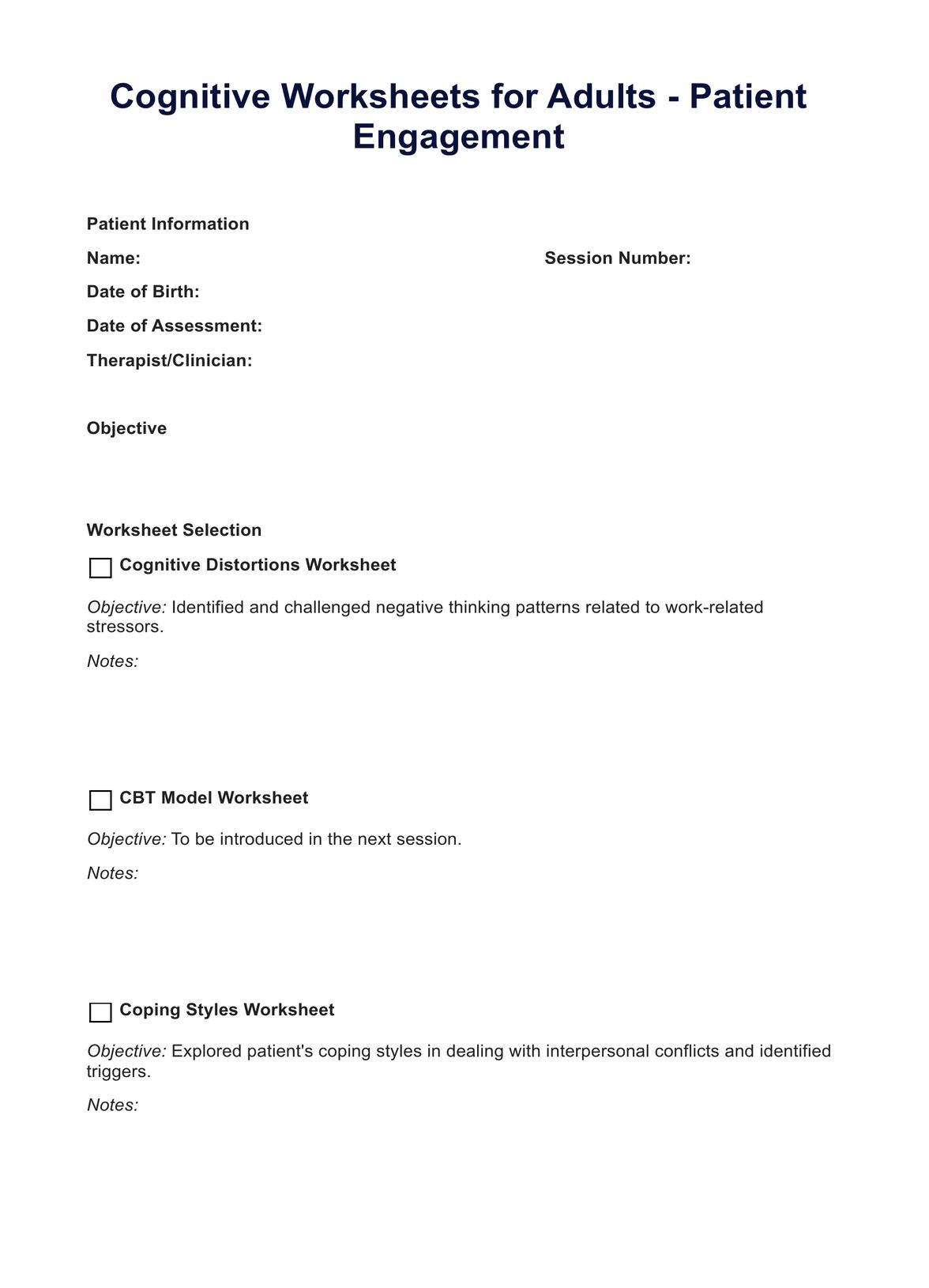
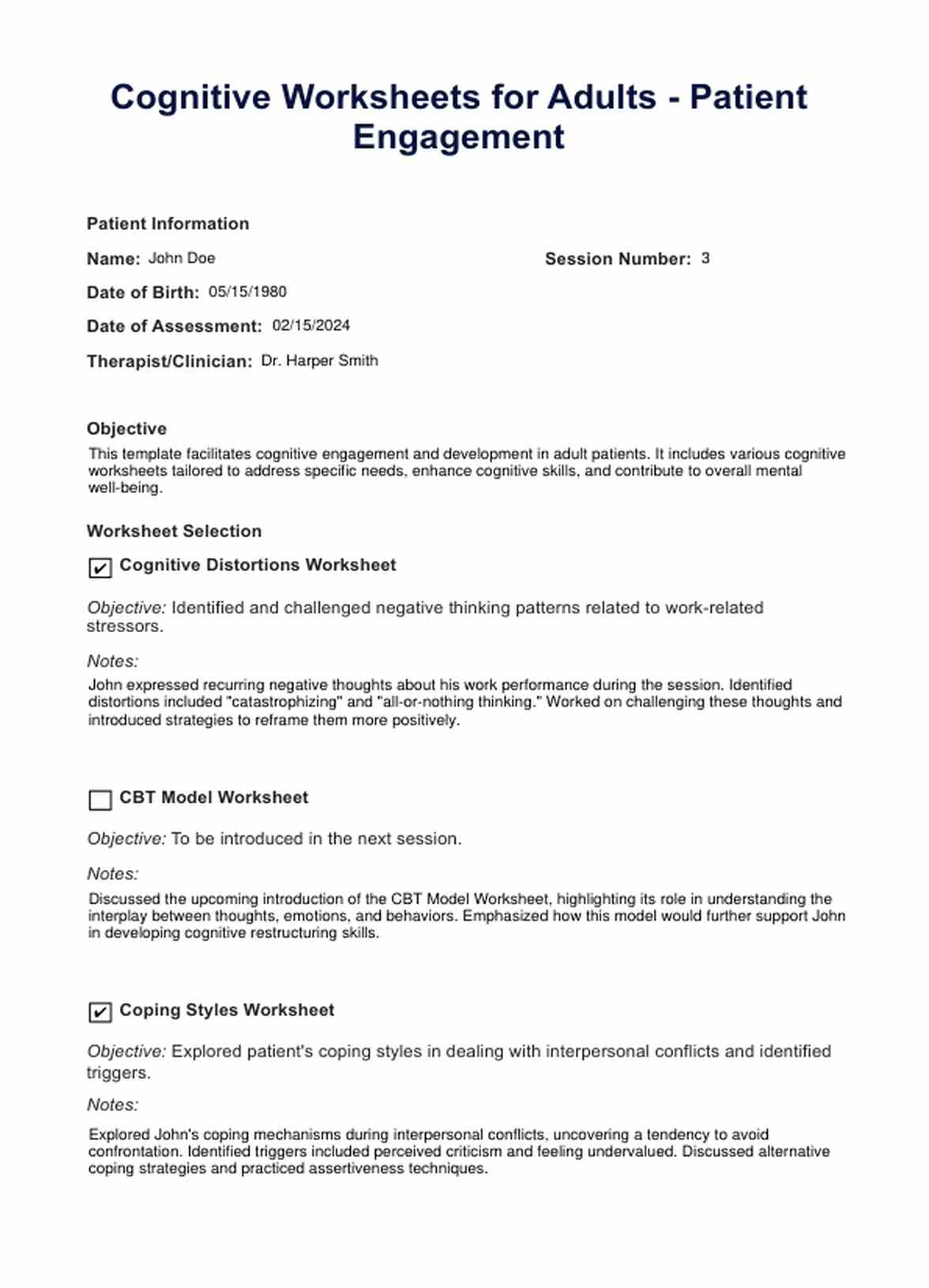

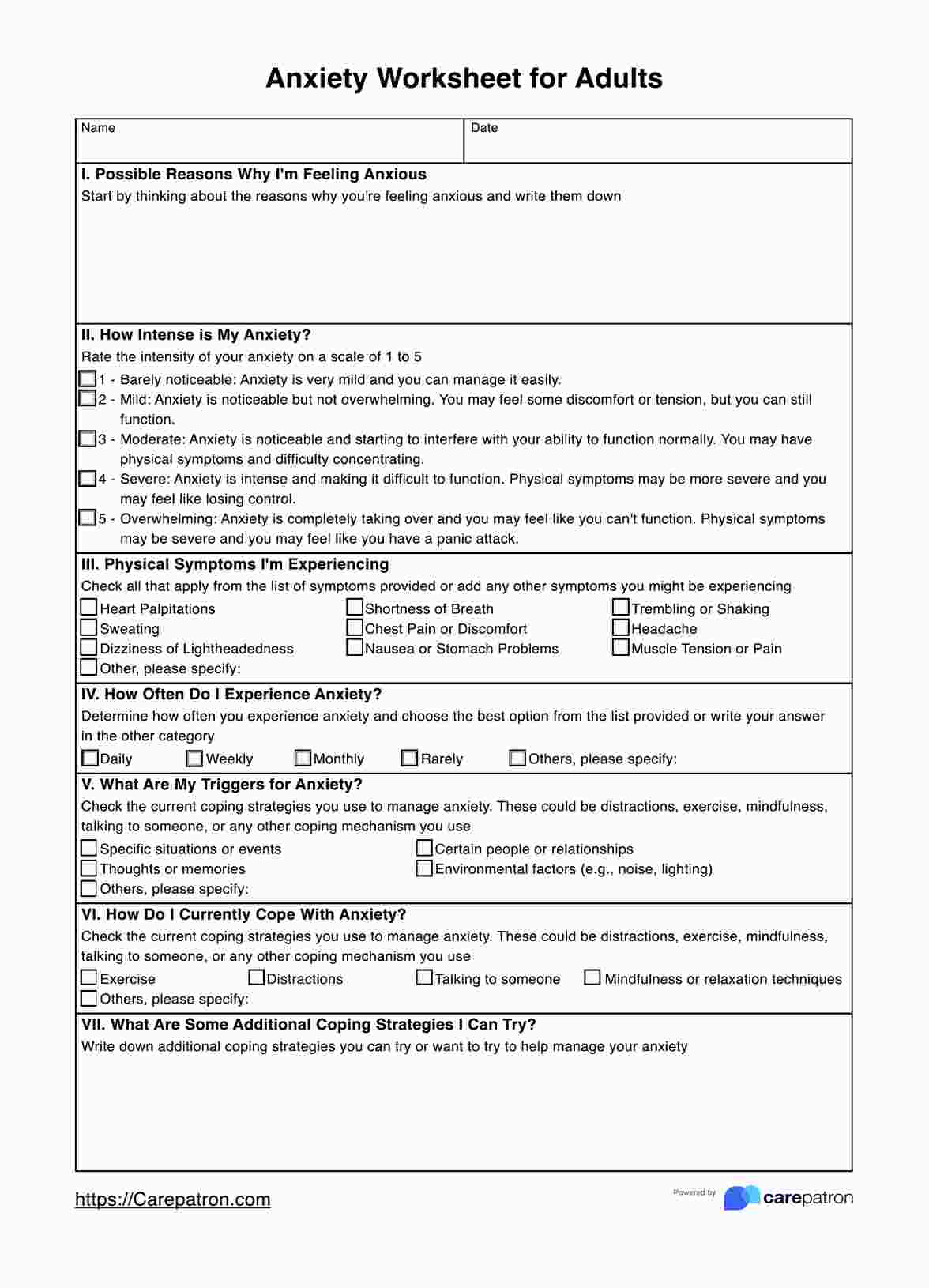
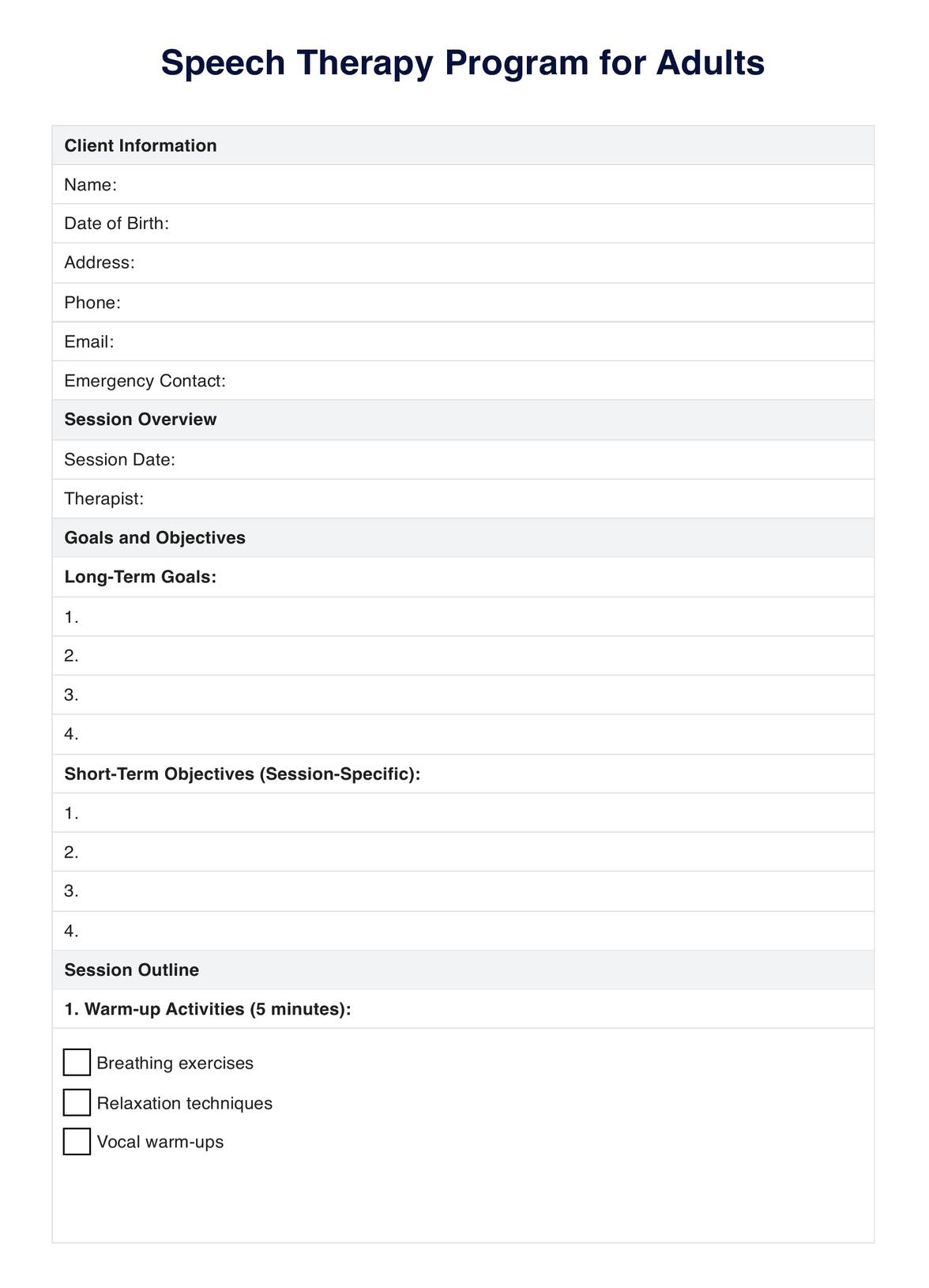
















-template.jpg)



























